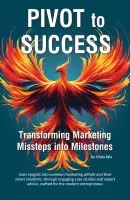- +1 512-591-8295
- [email protected]
- Mon - Fri: 9:00 - 16:00

I can’t imagine that you are still deciding to grow traffic to your website by focusing on optimizing all of your copy, your titles, and your snippets and descriptions for keywords to please the bots.
Meta tags and keywords are definitely not the way to optimize your SEO, but I know there are a lot of entrepreneurs who still think so, because that’s what we’ve heard for so long. If you’re still stuck in this old way of thinking about SEO, don’t take it from me that it’s time to change – take it from Rob.
Rob didn’t handle his own SEO. He hired a software developer to do so. It seemed to make sense – a techie person should be able to do tech like SEO, right? (Psst … not always). The developer wasn’t an SEO expert at all, but did a small bit of research to find out what to do. He chose to grow their traffic by focusing on having a lot of websites with over-optimized keyword use.
It’s not that it didn’t work – it did. They built their traffic and their business and were having high 6-figure years.
But … no matter how hard they tried, they were never able to reach a 7-figure year, and then those strategies started to backfire – which controversial strategies always tend to do. They were questionable when they were implemented, and then started to be penalized by Google. Suddenly their annual revenue dropped to about 60% of what it had been.
Beyond simple search engine optimization, you need to focus on helping your audience take the next step in their journey, which will then help you with conversions.
Website traffic doesn’t make you money (unless your website is designed to just generate money from ads). Conversions make you money.
If you look at Google overall, the most traffic will come from different SERP features such as the the top “suggested” result or the “people also ask” section. Just because your website rank #1 in search results doesn’t necessarily mean that you’re going to get all of the traffic.
One of the newer updates is that Google also shows results to a searcher based upon what they think is their stage of intent, which helps you greatly … since the traffic you get should be more intune with their spot in your conversion funnel. And that’s the type of traffic we want. It converts better.
In short, optimize for people, not robots.
Use your titles, snippets and images to attract and help the searcher understand what your content is about and how it will help them meet their needs.
Yes, you want to make sure keywords are in your title and description – because often those will help the viewer understand what your post is about. But don’t include keywords for the bots – they don’t need it.
And no, I am not suggesting to use “click-bait” headlines or descriptions. On rare occasions those have a place, but they are also proven to backfire.
So think about “what is going to make a person want to click on this” and less about “what is going to make this show up in search”.
Curious how you can increase your website traffic?
Get solid marketing strategies, designed for entrepreneurs on the track to 7-figures and beyond, right in your inbox.

This website uses cookies to ensure you get the best experience on our website. By continuing to use the website, you agree to our use of cookies. We do not share or sell your information. More info
